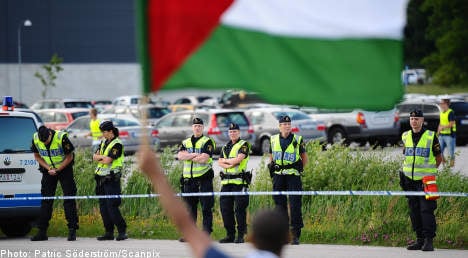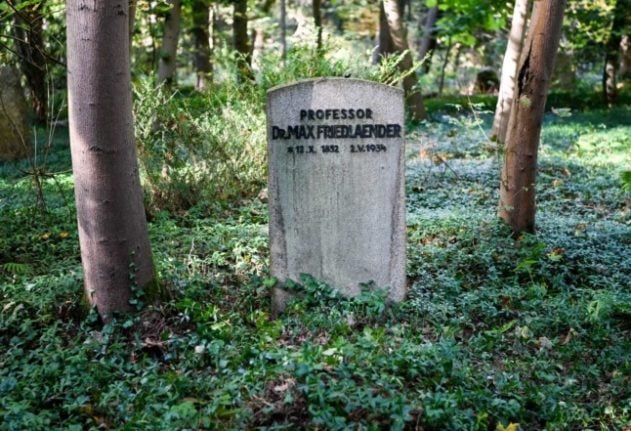Police spokesman Mats Trulsson in the city of Karlskrona said one pro-Palestinian demonstrator had been taken into custody before the match but was set to be released shortly.
Other than that, “our evaluation is that the demonstrations went exactly according to the plans that led to their authorisation,” he told AFP.
Police and Swedish intelligence had been preparing for Sunday’s game, a qualifier for the European handball championship, after protesters clashed with police in March 2009 on the sidelines of an Israel-Sweden Davis Cup tennis tie in the southern city of Malmö.
Malmö, which is home to a large Muslim community, had ordered that the controversial match be played behind closed doors for fear of violence in the arena.
The protestors failed to distract Sweden’s handball team, which dispatched Israel 28-17.
Following the match, Sweden’s Kim Ekdahl Du Rietz – who netted nine goals during the game – remained cautious about commenting on the protests.
“No, it’s nothing that we…eh, I’m not going to comment on that,” he told the TT news agency.
As Sweden had already secured a place in the next round of the 2012 European Men’s Handball Championships, the match against Israel was of little importance beyond possibly improving Sweden’s placement in seeding for the tournament, which will be played in Serbia in January 2012.



 Please whitelist us to continue reading.
Please whitelist us to continue reading.
Member comments